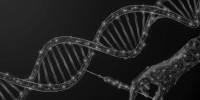
Loss of Cell Death Brakes in Inflammatory Bowel Disease
Inflammatory bowel disease (IBD) is a group of chronic diseases that cause inflammation in the digestive tract, specifically the small intestine and colon. A new study is looking at the causes of inflammatory bowel disease (IBD).
Inflammatory bowel disease (IBD) is a group of chronic diseases that cause inflammation in the digestive tract, specifically the small intestine and colon. The two main types of IBD are Crohn's disease and ulcerative colitis. IBD can cause a range of symptoms, including abdominal pain, diarrhea, weight loss, and fatigue. The exact cause of IBD is not known, but it is thought to be a combination of genetic, environmental, and also immune system factors. There is currently no cure for IBD, but treatment can help manage symptoms and prevent complications. Treatment options include medications to reduce inflammation, surgery, and lifestyle changes.
A new study is looking at the causes of inflammatory bowel disease (IBD). The researchers believe that a problem with cell death might be a key factor in IBD. So, they collected biopsy samples from people with IBD and compared them to samples from people without IBD. The results showed that in people with IBD, there is a loss of control over cell death. That means that cells are "primed" to die even when the inflammation has healed. This loss of control could be behind the relapsing nature of IBD and the researchers believe that restoring control over cell death could also be an important step in treating the disease.
Molecular healing and novel drug development
Their in-depth analysis of regulated death pathways remarkably reveals that in people with IBD, the brakes that normally stop cells from dying are not working. This means that cells are still in a state where they can die, even if the person appears to be healthy according to endoscopic and histologic tests.
The authors explain:
 Characterisation of cell death is essential to confirm our hypothesis that disinhibition of programmed cell death is a rudimentary molecular defect in IBD. Restoration of cell death brakes may be intrinsic to molecular healing and novel drug development.
Characterisation of cell death is essential to confirm our hypothesis that disinhibition of programmed cell death is a rudimentary molecular defect in IBD. Restoration of cell death brakes may be intrinsic to molecular healing and novel drug development.
Characterisation of cell death is essential to confirm our hypothesis that disinhibition of programmed cell death is a rudimentary molecular defect in IBD. Restoration of cell death brakes may be intrinsic to molecular healing and novel drug development.